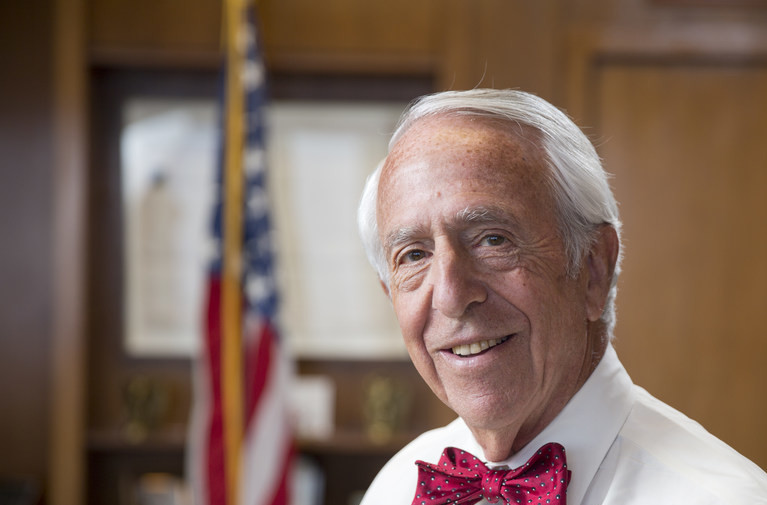BREAKING: Federal Judge Rules Trump’s Deployment of National Guard to Los Angeles Violates Constitution
Date: September 3, 2025
Location: San Francisco, California
In a landmark ruling, U.S. District Judge Charles Breyer declared that President Donald Trump’s deployment of National Guard troops and U.S. Marines to Los Angeles earlier this summer violated the Posse Comitatus Act, a 19th-century law prohibiting the use of military forces for domestic law enforcement. The decision, issued on Tuesday, marks a significant rebuke of the Trump administration’s expansion of executive power and its efforts to militarize responses to civil protests.
⚖️ 1. Legal Basis of the Ruling
Judge Breyer’s 52-page opinion emphasized that the Trump administration systematically violated the Posse Comitatus Act of 1878, which restricts the federal government from using the military to execute domestic laws without congressional approval. The ruling cited evidence that troops were used for crowd control, traffic blockades, and setting up armed perimeters during immigration raids and protests in Los Angeles. Breyer noted that the administration’s actions were willful and intentional, contradicting their own training materials on the limits of military involvement in civilian affairs.
🛡️ 2. Context of the Deployment
The controversy began in June 2025, when Trump federalized 4,000 National Guard soldiers and 700 U.S. Marines and deployed them to Los Angeles amid protests against immigration enforcement raids. The administration argued that the deployment was necessary to protect federal personnel and property, citing inherent constitutional authority. However, California Governor Gavin Newsom and Los Angeles Mayor Karen Bass vehemently opposed the move, insisting that state and local law enforcement were fully capable of managing the protests.
⚔️ 3. Judge Breyer’s Reasoning
Breyer, a Clinton appointee, rejected the administration’s arguments, stating that no rebellion or invasion justified the deployment under federal law. He warned that the administration’s logic could lead to a “national police force with the president as its chief,” undermining constitutional checks and balances. The judge also highlighted that troops were often indistinguishable from federal law enforcement agents, exacerbating the perception of military overreach.
🚫 4. Injunction and Limitations
The judge issued an injunction blocking the Trump administration from using troops in California for law enforcement activities, including arrests, searches, seizures, crowd control, and evidence collection. However, the injunction is paused until September 12 to allow the administration time to appeal. Notably, the ruling does not require the withdrawal of the remaining 300 National Guard troops still stationed in Los Angeles but strictly limits their activities to non-law enforcement functions.
🌍 5. Broader Implications
This ruling has immediate implications for Trump’s plans to deploy National Guard troops to other cities, including Chicago, Baltimore, and New York. It sets a potential precedent for other courts considering similar challenges, emphasizing that presidential power is not unlimited. Legal experts, such as Villanova University professor Brenner Fissell, note that Breyer’s opinion provides the most detailed judicial interpretation of the Posse Comitatus Act in decades and will likely influence future cases.
📢 6. Political Reactions
- California Officials: Governor Newsom celebrated the ruling, declaring that “no president is a king” and accusing Trump of “authoritarian” overreach. Mayor Bass echoed this sentiment, vowing that Los Angeles would not “buckle” to federal militarization.
- Trump Administration: White House spokeswoman Anna Kelly dismissed Breyer as a “rogue judge” attempting to “usurp the authority of the Commander-in-Chief”. The Department of Justice is expected to appeal the decision.
- Public Opinion: A July CNN poll found that 59% of Americans opposed Trump’s use of National Guard troops against the wishes of state governors, with sharp divisions along partisan lines.
💎 Conclusion
Judge Breyer’s ruling is a pivotal moment in the ongoing debate over the limits of executive power and the role of the military in domestic affairs. By affirming the constraints of the Posse Comitatus Act, the decision reinforces the principle that the U.S. military must remain apolitical and not serve as a tool for enforcing domestic laws. As the Trump administration prepares to appeal, this case could ultimately reach the Supreme Court, where the balance of power between the federal government and states will be further defined.
